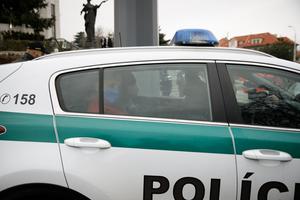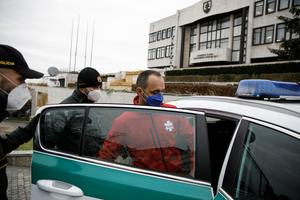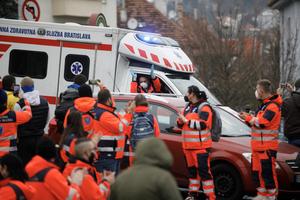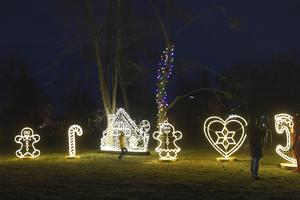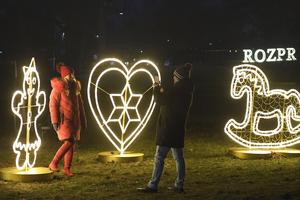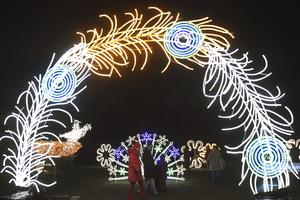Good evening. Read the Wednesday, December 15, 2021 edition of Today in Slovakia to catch up on the main news of the day in less than five minutes. We wish you a pleasant read.
Important reforms passed without Sme Rodina support
Parliament adopted two crucial reforms at its December 14 session: the reform of hospitals and the reform of national parks.
Neither of these reforms was supported by the junior coalition party Sme Rodina. The party instead advocated the interests of the critics of both proposals.
The reform of hospitals, drafted by Health Ministry under Vladimír Lengvarský (OĽaNO nominee), was supported by 76 MPs. Apart from the lawmakers from the ruling parties, OĽaNO, SaS and Za Ľudí, MPs who had left the coalition in the past voted for the reform. The adoption was crucial for Slovakia in order to obtain money from the first EU recovery plan package.
Based on the approved changes, hospitals in Slovakia will be divided into five categories, all having a different scope of activities and patients. As a result, some hospitals in smaller towns will turn into aftercare facilities – a fact some municipalities criticised.
A detailed map of hospitals should be introduced by the ministry next year, in time for the regional and municipal election. Hospital reform can thus become a campaign topic, especially in the regions where health facilities will not serve their current purpose, the Sme daily reported. These facilities are expected to start working under a new regime from 2024.
The second reform, concerning national parks, was also supported by the MPs who had left the coalition. The reform was passed by 75 MPs out of 76 deputies present.
Under the new rules, the administration of forest lands in national parks owned by the state will fall under the Environment Ministry. The reform should secure thegreater protection of natural parks, currently insufficient, as several activists have claimed.
The key date is March 31, 2022, when the administrations of national parks will be established as individual environmental protection organisations. They will manage state-owned movable and immovable property in the national parks. The next day, April 1, the administration of the affected property will be delimited.
Detention of emergency healthcare workers causes uproar
Earlier on December 14, emergency healthcare workers and nurses gathered in front of parliament to “thank” the MPs and the government for their failure to improve conditions for healthcare workers, along with the unfulfilled promises of a significant salary hike in health care in 2022 supposed to stabilise staff after the pandemic.
The police detained two of the protesting rescuers, among them František Majerský, chair of the Slovak Chamber of Health Rescuers (SKZZ), due to the violation of the law and current national emergency rules, which includes the ban on a gathering of more than six people. They were released from prison after several hours.
The detention caused an uproar among the public. While some politicians, such as OĽaNO chair Igor Matovič, commented that everyone is equal before the law, and protests are banned during a national emergency and under the current anti-pandemic rules, others pointed out that when the opposition called for protests or there were people blocking the streets of Bratislava, nobody was detained. The protesters were supported by several medical organisations as well.
The SKZZ itself said that they are not aware of any illegal actions, adding that the protest was attended by individuals who adhered to all anti-pandemic measures, were fully vaccinated and expressed their opinion in a non-violent way.
The interim police chief and the interior minister, on the other hand, defend the actions of the police officers, though the latter expressed regret that they had to interfere against the rescuers, who alongside them are standing in the front lines in the fight against the pandemic.
Meanwhile, the regional prosecutor called the prosecution of detained rescuers unlawful, and ordered the police officer to look into the case again.
If you like what we are doing and want to support good journalism, buy our online subscription. Thank you.
Coronavirus and vaccination developments
6,783 people were newly diagnosed as Covid positive out of 20,985 PCR tests performed on December 14. The number of people in hospitals is 3,222, while 105 more deaths were reported on Tuesday. The vaccination rate is at 49.20 percent, 2,706,158 people having received the first dose of the vaccine. More stats on Covid-19 in Slovakia here.
The Public Health Authority (ÚVZ) will be able to ask for people's phone numbers from telecom operators in order to prevent the spread of Covid-19 through the identification of potential carriers of the virus. The operators will have 24 hours to provide the information, as stems from an amendment to the law on electronic communications passed by the parliament.
The vaccination centre at the Aupark shopping centre in Bratislava will be closed; instead, the capacities of the vaccination centre at the National Football Stadium should be reinforced.
The city of Košice has cancelled the Christmas markets this year, following a discussion with regional hygienists and taking the current anti-pandemic measures into consideration. Neither will planned cultural events take place.
Picture of the day
The Rozprávkovo (Fairy Tale Land) lights installation is on display in the city park in Košice, as part of the Christmas programme. Visitors can find popular fairy tale figures like Little Red Riding Hood, the gingerbread house from Hansel and Gretel and Perinbaba (The Feather Fairy).
Feature story for today
The adverse consequences for children due to the shutting of schools during the Covid-19 pandemic are well-documented, wide-ranging and long-lasting. With Slovakia having administered one of the longest school closures globally, growing divisions have opened up within the government and between experts on how best to handle children’s education, as another deadly wave of the pandemic engulfs the country.
Unlike last year, when schools shut in mid-October 2020 for most pupils and remained closed for more than half a year, the Slovak government has opted to leave schools open this time around, trying to strike a balance that would both mitigate the pandemic and prevent the kind of harsh lockdown imposed across the country last winter. However, the government eventually decided that schools around the country should switch to online learning from the fifth grade upwards one week before Christmas holidays, on December 13, as part of what experts have described as a half-hearted lockdown imposed on the country.
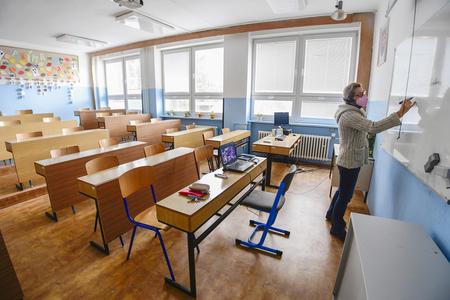
In other news
The opposition party Smer will hold a protest against the government and the anti-pandemic measures currently in place on Thursday, December 16, in the form of a car
escortprocession.Slovak diplomat František Ružička was elected the president of the OECD Executive Committee. Slovakia has thus acquired the top post in the most important of permanent committees in the organisation, as the Slovak Foreign Affairs Ministry reported.
The Slovak and Czech police announced the dissolution of a gang of VAT fraudsters and the prosecution of dozens of people and companies. The group allegedly robbed both countries of more than €6.5 million in the past three years, they added.
The Constitutional Court halted the effectiveness of a provision enabling employers to dismiss workers older than 65 years entitled to a retirement pension, based on a motion of the opposition. The court is yet to decide on whether the amendment to the Labour Code, adopted by the current ruling coalition that was to come into force next year, is in compliance with the Constitution.
The cabinet decided at its December 14 session on the interest of granting a national visa to highly-qualified workers from non-EU countries who decide to work in Slovakia. The proposal was submitted by Labour Minister Milan Krajniak (Sme Rodina).
More on Spectator.sk today:
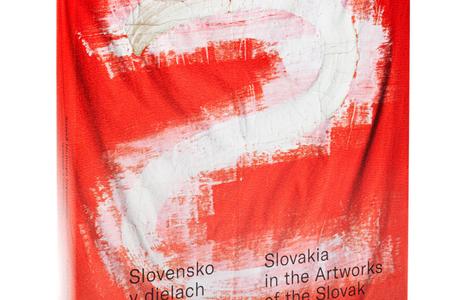
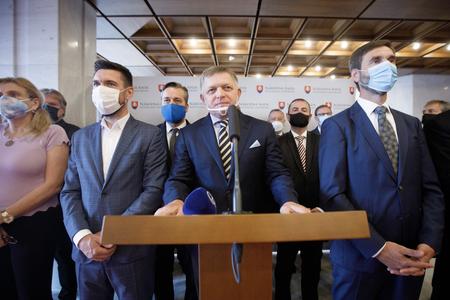
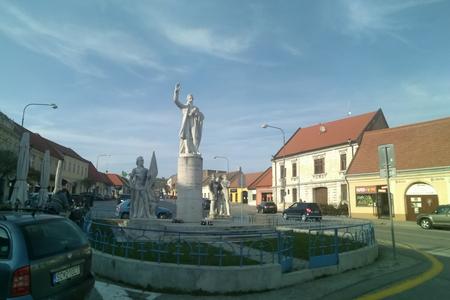
If you have suggestions on how this news overview can be improved, you can reach us at editorial@spectator.sk.



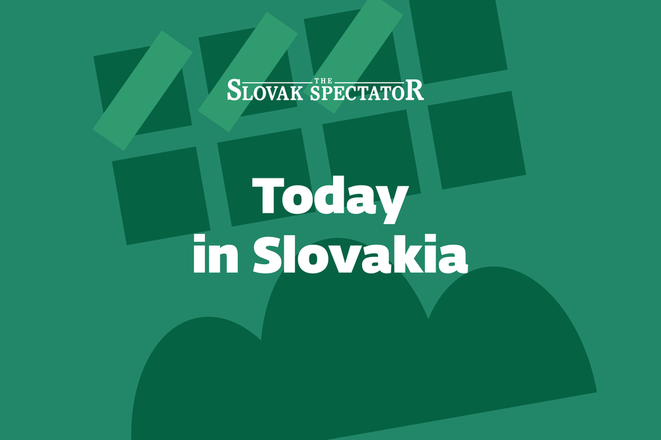 (source: SME.sk / Hej,ty)
(source: SME.sk / Hej,ty)
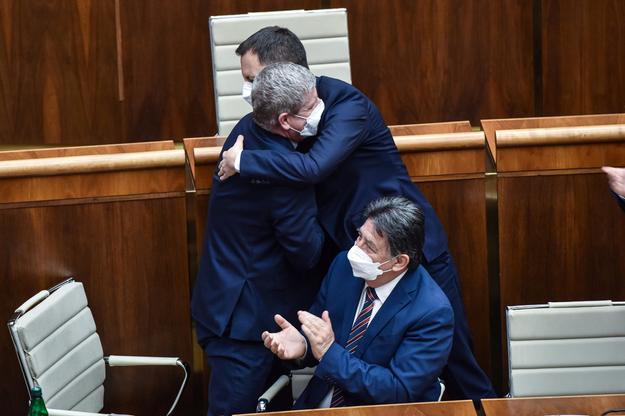 PM Eduard Heger congratulates Health Minister Vladimír Lengvarský (source: TASR)
PM Eduard Heger congratulates Health Minister Vladimír Lengvarský (source: TASR)
